Fools Mission is about a lot of things: community, service, growth. Each Fool experiences their involvement in their own unique way. Read on for some first-hand accounts of what it’s like to be a Fool.
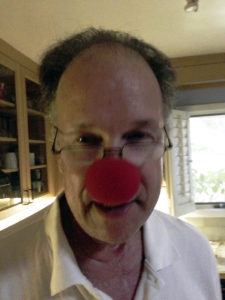 “I am keenly aware of how the accidents of my birth have blessed me in so many ways. As I age and reflect on this world and my place in it, I am becoming increasingly aware of exactly how my inherent advantages affect the world around me and help to perpetuate a status quo that I find morally deficient. Involvement in Fools Mission provides me the opportunity to experience, examine, and address my own complicity in the power dynamics of our society. Immersing myself in a peer group consisting of people throughout the power strata within our society has opened my eyes in fundamental ways about how I as an individual can make a real difference to real people (including myself) as we collaboratively navigate the challenges and privileges that the accidents of birth have created for us all. I feel enriched by the humanity of the people I work with in Fools Mission — people with whom, without Fools Mission , I would never have had the opportunity to really know. Conversely, what a gift it is to expose and demonstrate my own humanity to the same people!”
“I am keenly aware of how the accidents of my birth have blessed me in so many ways. As I age and reflect on this world and my place in it, I am becoming increasingly aware of exactly how my inherent advantages affect the world around me and help to perpetuate a status quo that I find morally deficient. Involvement in Fools Mission provides me the opportunity to experience, examine, and address my own complicity in the power dynamics of our society. Immersing myself in a peer group consisting of people throughout the power strata within our society has opened my eyes in fundamental ways about how I as an individual can make a real difference to real people (including myself) as we collaboratively navigate the challenges and privileges that the accidents of birth have created for us all. I feel enriched by the humanity of the people I work with in Fools Mission — people with whom, without Fools Mission , I would never have had the opportunity to really know. Conversely, what a gift it is to expose and demonstrate my own humanity to the same people!”
Eitan Fenson – President and CEO, InPoint Systems; 25-year Silicon Valley technologist; fool
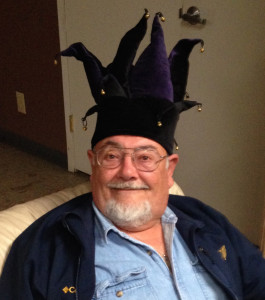 “What do I get? Participation allows me to practice my humanity: listening and learning from others with differing backgrounds and experiences. Unlike other groups that follow the provider/client model, money or socio-economic position has little to do with our group; we respect each other and recognize that wisdom has nothing to do with either money or power. I love that, and I suspect that everyone else feels similarly.”
“What do I get? Participation allows me to practice my humanity: listening and learning from others with differing backgrounds and experiences. Unlike other groups that follow the provider/client model, money or socio-economic position has little to do with our group; we respect each other and recognize that wisdom has nothing to do with either money or power. I love that, and I suspect that everyone else feels similarly.”
Gene Thiers – Chief Technical Officer, Silvan Source, Inc.;
For 29 years, Senior Director of Technology Commercialization at SRI International; fool
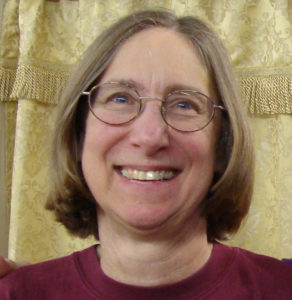 “I grew up in the suburbs of a medium-sized town in Oregon. Almost everyone I know is white, college-educated, and has worked as, or is, a working professional. I joined Fools Mission out of curiosity and a feeling that I’m missing something, that there are people whom I know nothing about living very different lives right next door but out of my sight. As a nation, we are allowing ourselves to turn toward feudalism. From fear of the “Other,” we spend our taxes on border security, armaments, and surveillance like serfs cowering inside the noble’s castle walls. Who are these “Others?” What is so frightening about them? I want to meet them myself. I want to find out whether we can find ways to live and work together, to rebuild a country where we all enjoy abundance. Where different cultures and points of view are appreciated and shared giving us each new insight into how we may live more varied, open, and fulfilled lives.”
“I grew up in the suburbs of a medium-sized town in Oregon. Almost everyone I know is white, college-educated, and has worked as, or is, a working professional. I joined Fools Mission out of curiosity and a feeling that I’m missing something, that there are people whom I know nothing about living very different lives right next door but out of my sight. As a nation, we are allowing ourselves to turn toward feudalism. From fear of the “Other,” we spend our taxes on border security, armaments, and surveillance like serfs cowering inside the noble’s castle walls. Who are these “Others?” What is so frightening about them? I want to meet them myself. I want to find out whether we can find ways to live and work together, to rebuild a country where we all enjoy abundance. Where different cultures and points of view are appreciated and shared giving us each new insight into how we may live more varied, open, and fulfilled lives.”
Kaye Bonney – Retired Technical Editor, Oracle USA; fool
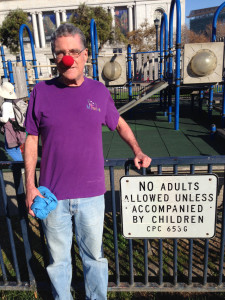 “Most of the things I have learned about life have been from observation rather than formal education. I subscribe to the Mark Twain line that says: ‘I never let my schooling get in the way of my education.’
“Most of the things I have learned about life have been from observation rather than formal education. I subscribe to the Mark Twain line that says: ‘I never let my schooling get in the way of my education.’
Fools Mission allows me to continue my education about ethnic groups and class status in a way that I have never been able to before. My assumptions are tested and my limits are stretched. I have been changed by the experience.”
David Vallerga – Attorney, Vallerga & Vallerga (Alternative Dispute Resolution and Probate); fool
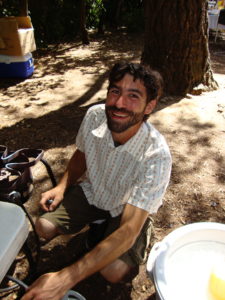 “I grew up in what many people would have considered a privileged environment. Many of my friends had material things that were beyond the means of our household—designer clothes, consumer electronics, the latest book or the most popular audiocasette. As I became a young adult, I drifted apart from my neighborhood play buddies, and began to spend more time with people who lived down the hill and across the tracks.
“I grew up in what many people would have considered a privileged environment. Many of my friends had material things that were beyond the means of our household—designer clothes, consumer electronics, the latest book or the most popular audiocasette. As I became a young adult, I drifted apart from my neighborhood play buddies, and began to spend more time with people who lived down the hill and across the tracks.
Fools Mission gives me an opportunity to explore the geographic, cultural, and economic divides between us. Intentionally interacting, and creating relationships with individuals outside your immediate social experience is inherently a consciousness-expanding practice. I don’t really consider Fools Mission to be a charitable enterprise—I consider Fools Mission to be a ministry. I just show up with nothing to give except a willingness to listen and learn, and every once in a while I get the opportunity to be of personal assistance to someone in some way. Sometimes ministry is helping someone move into an apartment, and sometimes ministry is showing up at a court date. Other times, ministry is being accompanied through a health care enrollment, or getting help with taxes.
And we have Potlucks!”
Aaron Castle – Environmental advocate; recycling specialist, Re-Computer; fool
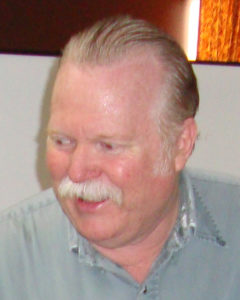 “So how would I explain what Fools Mission means to me, especially in the context of someone familiar with the “provider/client” system?
“So how would I explain what Fools Mission means to me, especially in the context of someone familiar with the “provider/client” system?
Fools Mission is based on relationships, formed out of trust created by sharing one another’s stories, experiences, opinions, and challenges. There is nothing new to me about the demographics of Fool’s Mission—I have had friends of many ethnic backgrounds, some with large families, from various countries, and of different degrees of access to wealth and education. What makes us Fools different is a commitment, still a work in progress, to make joint decisions, function democratically, and act together to assist one another in whatever ways we are able to. We empower each other to better deal with the ravages of an irrational, inhumane system where the costs of military dominance undermine the “social contracts” won in the 1930’s and 1960’s. We are blessed to have true experts in health care access (whose advice I will be needing soon), domestic violence issues, landlord/tenant problems, and immigration issues and reform. With every intervention or accompaniment, we learn from one another and grow stronger. Advocacy for one can result in action that benefits many. And a few of us can even sing and juggle!”
Mike Carter – Not-for-Profit Accountant; fool
